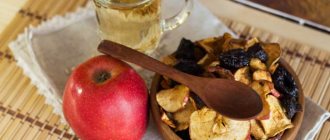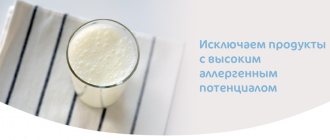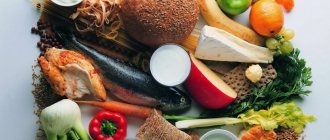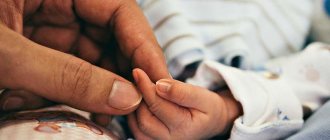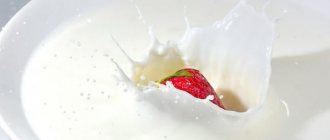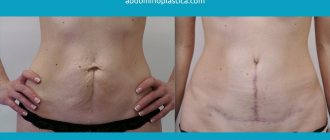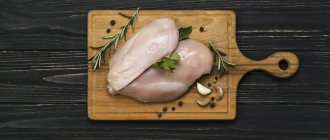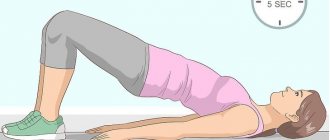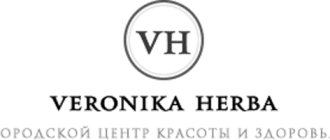Proper nutrition for mothers during the postpartum period
There are several basic principles on which the nutrition of nursing mothers is based. The first is individuality. According to experts, there is no one standard postpartum diet, since it is important to take into account the individual characteristics of each female body: body structure, the state of the immune system, the presence of allergic reactions. And if one mother can afford to organize fasting days on apples, then for another, apples may be completely prohibited and you need to choose a different product for these purposes. The second is the selection of an individual nutrition schedule. This period depends on the characteristics of the new mother’s body and the baby’s reaction. Each new product should be introduced into the diet gradually so as not to provoke a negative reaction in the newborn.
Content:
- Proper nutrition for mothers during the postpartum period
- Say stop to orange and chocolate
- Postpartum nutrition
- Postpartum diet after cesarean section
- Diets for weight loss during the postpartum period
- Breastfeeding - diet
The postpartum diet is important and there is a list of food groups that must be completely removed from a woman’s diet during the postpartum period, these include: fruits, namely citrus fruits and everything with a red color (red apples, peaches, etc.); potential allergens - exotic foods, caviar, honey, etc.; out-of-season vegetables, such as tomatoes and cucumbers (in winter); sparkling sweet water; grape; cabbage; sausages; smoked meats
Breast milk is recommended for baby development
The optimal composition of breast milk best meets the needs of a growing baby for proteins, fats, carbohydrates and vitamins, and therefore the child does not need the introduction of additional foods (complementary foods) until 4-6 months. Breastfeeding also contributes to the normal development and strengthening of the baby's immune system, and is also important for strengthening the bond between mother and baby.
What you eat and drink can be passed on to your baby in your breast milk
Say stop to orange and chocolate
There are situations when a nursing mother eats a small piece of chocolate, and after feeding the child develops a rash on his cheeks. And when a mother allows herself to eat a cabbage salad, a sleepless night is guaranteed, as the child experiences bloating and colic.
Yes, there are children who react normally to any product eaten by their mother, but this is the exception rather than the rule. Therefore, a mother needs to carefully monitor her diet and plan it with the utmost care. Women during lactation should completely avoid: strawberries, red fish, peas, coffee, tea, nuts, chocolate, mayonnaise, canned food, alcohol, oranges.
Nutrition before birth
Throughout pregnancy, a woman must monitor her diet, but 1–2 months before giving birth, a proper diet becomes especially important, as the fetus continues to grow and develop, so it still needs vitamins and nutrients. But a woman’s body also undergoes significant changes a couple of months before giving birth. In the later stages, the digestive system is no longer able to work like a clock, so it is important to relieve it, but make sure that the body receives the required amount of vital substances.
The menu before childbirth must include the following product groups:
- fresh vegetables, herbs, fruits, berries;
- cereal porridge, whole grain bread;
- fatty fish;
- vegetable oils: flaxseed, olive;
- protein foods: lean meat, eggs, cottage cheese;
- dairy dishes and fermented milk drinks.
Postpartum nutrition
The first weeks after childbirth are quite strict in terms of nutrition, as it is necessary to adhere to generally accepted recommendations of specialists. The main goal in selecting nutrition is to restore a woman as quickly as possible after pregnancy and childbirth, and to help the baby adapt to the new world.
The postpartum diet in the first days may include:
| Days after birth | Products |
| 1 day | Bread in the form of crackers, low-fat broth, tea |
| 2 days | Buckwheat porridge, cooked in water with the addition of a small amount of vegetable oil + menu 1 day |
| 3 days | Beef, stewed or boiled, Low-fat cheeses (salted and smoked cheeses must be said - no) + menu 1 and 2 days |
In addition to food, it is important to drink at least two liters of clean water a day.
Three days after birth, the diet can be slightly supplemented with the following products:
- baked fruits;
- boiled, baked or steamed vegetables (with a minimum amount of salt);
- fermented milk products with a minimum percentage of fat content;
- dried fruit compotes;
- vegetable liquid soups;
- whole grain porridge.
Seven days after birth you can start consuming:
- fresh green apples;
- meat broths, not concentrated;
- boiled or baked sea fish;
- do not forget about the drinking regime - 2 liters of water per day.
The third week for those who have given birth allows you to further diversify your diet by adding:
- boiled cereals in the form of porridge and in soups;
- fresh chicken eggs (in limited quantities);
- dry biscuits;
- vegetables: boiled cabbage, broccoli, cauliflower, beets;
- freshly squeezed fruit drinks.
Menu after childbirth for a nursing mother
The daily calorie requirement of an ordinary woman is about 2500 kcal; nursing mothers need to increase the energy value of their diet by 500-700 kcal to 3000-3200 kcal. If you eat in excess of this norm, the excess will negatively affect your figure.
Every day a nursing mother needs to consume:
- 500 g carbohydrates;
- 120-130 g of proteins, of which 60% are of animal origin;
- 100-110 g of fat, of which 20% is of vegetable origin.
Food should be rich in vitamins and minerals, since they are important participants in biochemical processes in the body. Calcium and phosphorus are needed for the growth of bones and teeth, iron - for hematopoiesis, iodine - for the normal functioning of the thyroid gland. Therefore, it is so important that a woman’s diet includes fresh vegetables, fruits and herbs.
A nursing mother's meals should be divided and consist of breakfast, lunch and dinner, as well as two snacks (they allow you to avoid overeating during main meals and ensure continuous production of breast milk).
A nursing woman, especially in the first three months after giving birth, must exclude all potential allergy triggers in her baby from her diet.
Here is a list of foods that can cause allergies or intestinal dysfunction in a baby:
- fruits, berries and vegetables of bright red and orange color (citrus fruits, tomatoes, strawberries, etc.), kiwi, pineapples, grapes, radishes, red fish, seafood, caviar, chicken eggs, mushrooms, honey, dried fruits, nuts, chocolate, coffee, cocoa;
- salty and spicy dishes, onions, garlic, canned food, spices, rich broths, marinades, sauerkraut;
- products with preservatives, dyes, flavors: canned food, smoked meats, ham, sausages, sausages, semi-finished products, mayonnaise, ketchups, sauces, chips, soft cheeses, alcoholic and carbonated drinks.
The products that the baby's mother consumes must be fresh and environmentally friendly. After childbirth, a woman needs to regain her strength as quickly as possible, and breast milk production begins. Since the newborn's gastrointestinal tract is not yet mature at this time, she needs to be extremely careful in choosing food, that is, a strict diet is necessary.
In the first few days after giving birth, a young mother is usually thirsty. You can quench it with weak and unsweetened tea, compote of dried apples and pears, jelly from black currants, blueberries or lingonberries. You can drink no more than a glass of kefir and other fermented milk products per day.
What to exclude from your diet:
- strong tea, including green tea, coffee (cause increased excitability of the baby’s nervous system);
- any juices - both store-bought and freshly squeezed (can cause gas formation in the baby, as well as lead to unwanted allergic reactions);
- millet barley, pearl barley and wheat cereals (contain gluten, which can cause food allergies);
- cabbage in any form (becomes a common cause of bloating);
- cucumbers, tomatoes and bell peppers (can cause allergies and also affect gas formation);
- fish, seafood and eggs (the baby is likely to have allergies);
- chocolate, nuts and honey;
- dried fruits.
It is better to completely exclude milk, since it is highly allergenic, as well as yoghurts and curds with additives. And in the first week you should not eat fresh fruits, as they can cause food allergies and increased gas formation.
What can be included in the diet of a nursing mother:
- boiled or baked potatoes;
- buckwheat and rice porridge with water;
- any pasta;
- zucchini, they can be steamed or baked in the oven;
- cauliflower or broccoli - these can be steamed or added to soup;
- carrots and beets - in small quantities in soups;
- meat (rabbit, veal, beef, turkey) is allowed to be consumed from the second day after birth. It can be boiled, added to soup, or made into steamed cutlets or meatballs. The soup should be cooked in the “second” broth. The total amount of meat in the first week after childbirth should be approximately 150-180 g per day;
- 150-200 g of cottage cheese two to three times a week, kefir no more than a glass per day, sour cream 10-15% fat, cheese no more than 35% fat in a thin piece for a sandwich;
- black or gray slightly dried bread; for tea - crackers, crackers or dry biscuits without additives.
- 1-2 tbsp. spoons of vegetable oil per day, it is better to choose unrefined varieties of sunflower oil.
This article discusses the general criteria by which the menu is built after childbirth. It is important for a nursing mother to adhere to them so that this important period in her life together with her child passes without complications. Of course, these recommendations do not take into account all the nuances - after all, all women are different, just like their children. Therefore, in order to receive comprehensive explanations on the topic of proper nutrition, young mothers can contact the EsteDi Clinic, where they will be given an individual diet aimed at both reducing the woman’s weight and the health of the child.
Postpartum diet after cesarean section
A caesarean section is a serious operation, after which the body spends an incredible amount of effort to recover. After surgical delivery, it is important to monitor not only the woman’s reproductive system, but also the functioning of the urinary and nutritional systems. In order to help the body recover, specialists create a special diet and fluid intake regimen. In this case, the mother's standard diet is simply necessary.
On the first day after surgery, you can only drink non-carbonated mineral water. All other nutrients enter the body intravenously. Only from the second or even the third day, vegetable broths, chicken breast and whole grain porridge with water are added to the menu. Further, the diet of a woman after a cesarean section is no different from the diet of a woman who gave birth naturally.
To maintain lactation or to stimulate it, the following products must be included in the diet:
- fermented milk products: yoghurts, fermented baked milk, kefir (low-fat) approximately 0.5 liters per day;
- lean types of meat, boiled or baked;
- low-fat cottage cheese;
- fruits and vegetables - except those that can cause gas;
- vegetable oil and butter.
We eat during labor!
yes or no
Once upon a time, the question of whether it was possible to eat during childbirth did not even arise; doctors believed that once contractions began, one should forget about food and drink. This was explained by the fact that if suddenly for some reason it is necessary to perform an emergency caesarean section, then general anesthesia will be needed, and before this anesthesia you cannot drink, much less eat (during such anesthesia, food debris can be thrown from the stomach into the lungs) . The only thing allowed was a few sips of water. But now everything has changed: childbirth has ceased to be a medical event, but has become a natural process, no one thinks about “what will happen.” In addition, even if a caesarean section is needed, it (even an emergency) is almost always done with the help of epidural anesthesia (and it is not affected by food intake). So now doctors are not so categorical about food during childbirth and even believe that food and water will help a woman avoid dehydration and maintain strength to survive contractions.
Therefore, if childbirth is going well and suddenly you want to eat, then a light snack is allowed. Well, if you don’t even want to think about food, you don’t need to force yourself. In general, everything should be as desired.
when there is
Very often, on the day of giving birth, a woman notices that she doesn’t feel like eating at all, at most she would like to eat something light and simple. The same is possible with the onset of contractions: the body is not in the mood for digestive processes now, so there will not be any strong appetite during childbirth. But, nevertheless, you don’t need to go into labor on an empty stomach either; childbirth will require strength, and we get the energy for it from food. Therefore, when contractions begin, doctors recommend that a woman have a light snack - this is the best time to eat. Firstly, when contractions are still weak and infrequent, you can eat without being distracted by painful sensations. Secondly, before the height of labor there is still a lot of time and the food will have time to be digested, and this is important because often during strong contractions the woman in labor experiences nausea. Thirdly, at the beginning of contractions, a woman is usually at home, where, of course, there is food, then in the maternity unit there will simply be nowhere to get it.
what is
Which dish or product should you choose? There are no special prohibitions on food, and you can be guided by your wishes, but it’s still worth considering that fatty foods are out of place now: they are hard on the stomach and can increase nausea during contractions. The same can be said about protein: it does not provide energy and is difficult and slow to digest. It is best to eat something from carbohydrates - they are easily digested and, most importantly, provide the necessary energy. Examples include banana, bread, toast, cereal, crackers, fruit puree, broth, soup or yogurt.
what drink
Contractions are physical work, like running a long distance race, so you'll almost always feel thirsty during labor. Another reason why women in labor want to drink: the maternity unit is often too warm or even hot, and the air in it is very dry. So drinking during childbirth is not only possible, but also necessary. What is the best choice? Plain water, clarified juice and weak tea will do. You should not drink soda, especially sweet soda: gas and sugar can irritate the stomach and provoke or worsen nausea. You need to drink a little, but often (sometimes even the usual amount of liquid also causes vomiting).
C-section
As we have already said, now almost everywhere a planned caesarean section is performed under epidural anesthesia and then eating and drinking is not prohibited. But if the operation is performed under general anesthesia, there will be restrictions on food intake. The last time you will be allowed to eat is about 8–12 hours before the operation. Since a planned caesarean section is usually performed in the morning, it turns out that the last meal is dinner. It should be light - the same bread, toast, yogurt, broth will do. Meat (even lean meat), cheeses, nuts, fatty cottage cheese - in general, it is better not to eat all foods that take a long time to digest. Also, you should not eat a lot of fiber (vegetables and fruits) - it can affect intestinal function.
If general anesthesia is suddenly required during childbirth, and the woman has recently eaten, the anesthesiologist must be told about this. The doctor will be more careful to ensure that, under anesthesia, the contents of the stomach do not enter the respiratory tract.
some nuances
– Today, in almost all maternity hospitals you can take water with you to childbirth. It is better if it is in a plastic bottle.
– Is it possible to take some food with you to the maternity hospital? Everything here will depend on the rules of the maternity hospital. Usually it is not allowed to bring food directly into the maternity unit itself, and this is understandable: a woman is already in it during active contractions, when she has no time for food at all. But there are exceptions; in some places they allow you to bring the same toast, bread, and chocolate to the labor block. In any case, you can put some non-perishable foods in your maternity hospital bag: what if the labor is delayed, or the baby is born late in the evening, when dinner is already over and breakfast is still far away? This is where you can have a snack.
– If a partner (husband, sister, girlfriend) is present at the birth, then within a few hours he will also want to eat. Therefore, you will need to take something to eat for him.
Talk to your midwife or doctor who will be delivering you for advice about eating and drinking. Or just call the maternity hospital and find out what food you can take with you. Then it will be easier for you to prepare and endure childbirth.
Diets for weight loss during the postpartum period
During breastfeeding, women are strictly prohibited from following strict diets. Since strict diets after childbirth do not provide adequate nutrition, therefore, milk may disappear. During lactation, it is better not to engage in any experiments with weight and nutrition. Give your body time to recover and rest after major stressors such as pregnancy and childbirth. You can go on traditional weight loss diets only when you have completely stopped breastfeeding your baby (or in the third month after giving birth if the baby is bottle-fed).
Dietary support for new mothers
During pregnancy, your body may have decreased levels of iron and other important vitamins and minerals.
Nursing mothers
Caring for a newborn will require a lot of your time and energy, and if you are breastfeeding, the vitamins and minerals you get from food alone may not be enough for you and your baby. You can supplement your diet with a vitamin and mineral complex such as Elevit . It will provide you with vitamins, minerals and microelements that will help you cope with everyday activities and worries. Each tablet contains iron for energy, calcium for healthy bones, B vitamins to help overcome stress, and vitamin C and zinc to support immunity.
